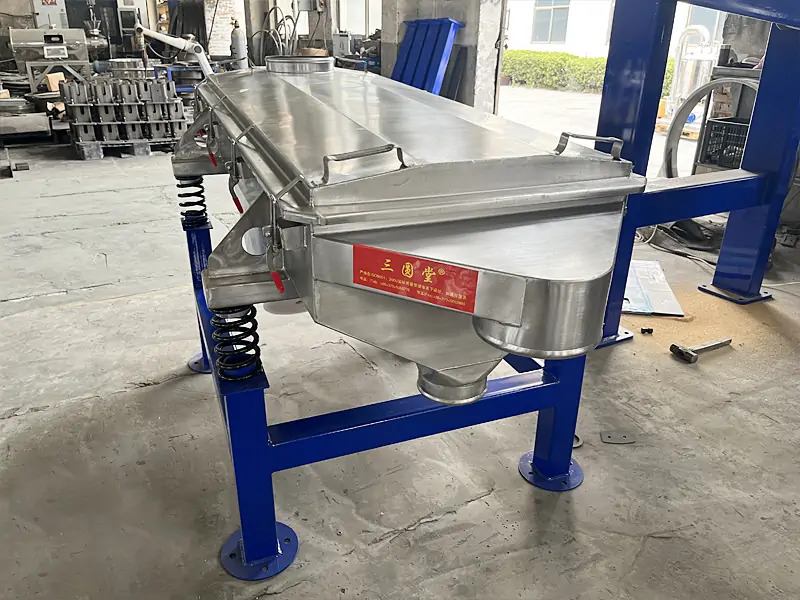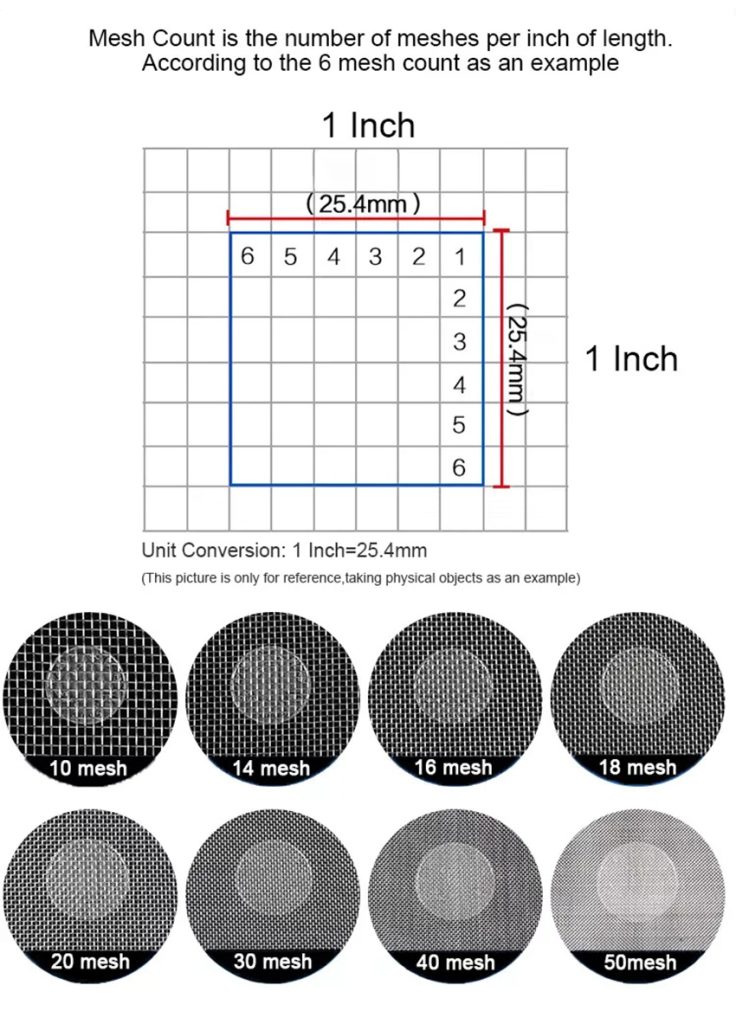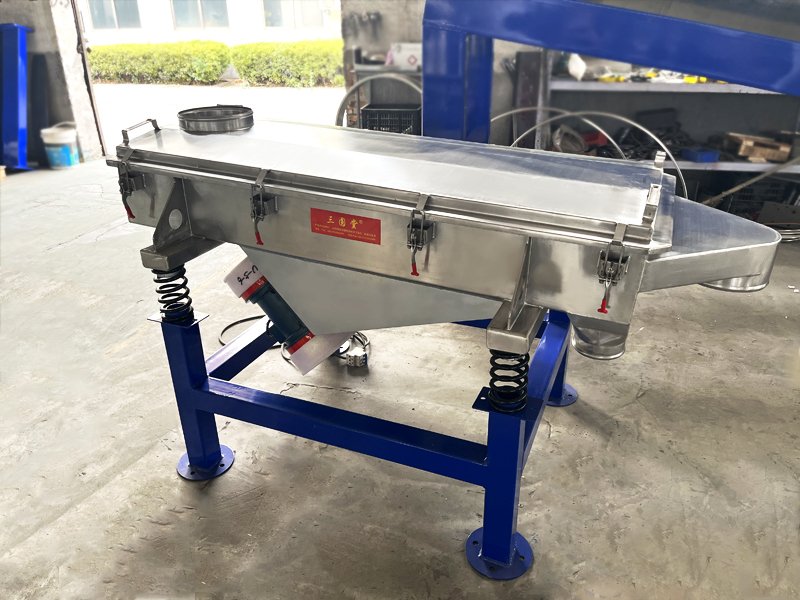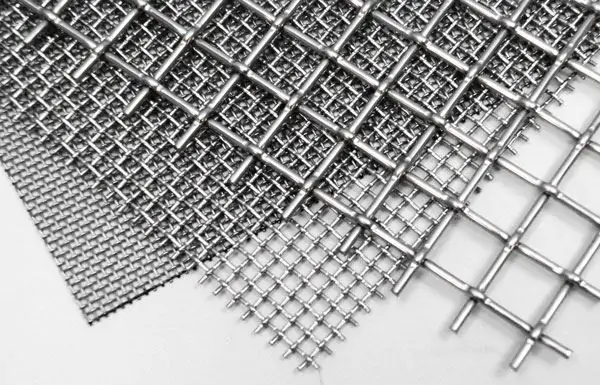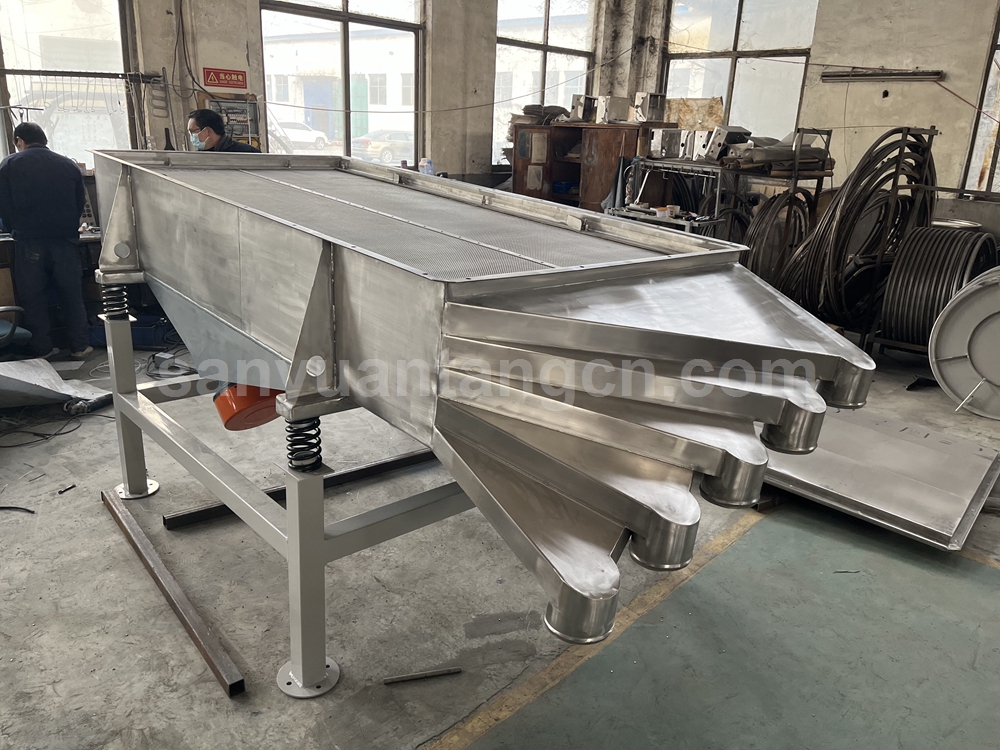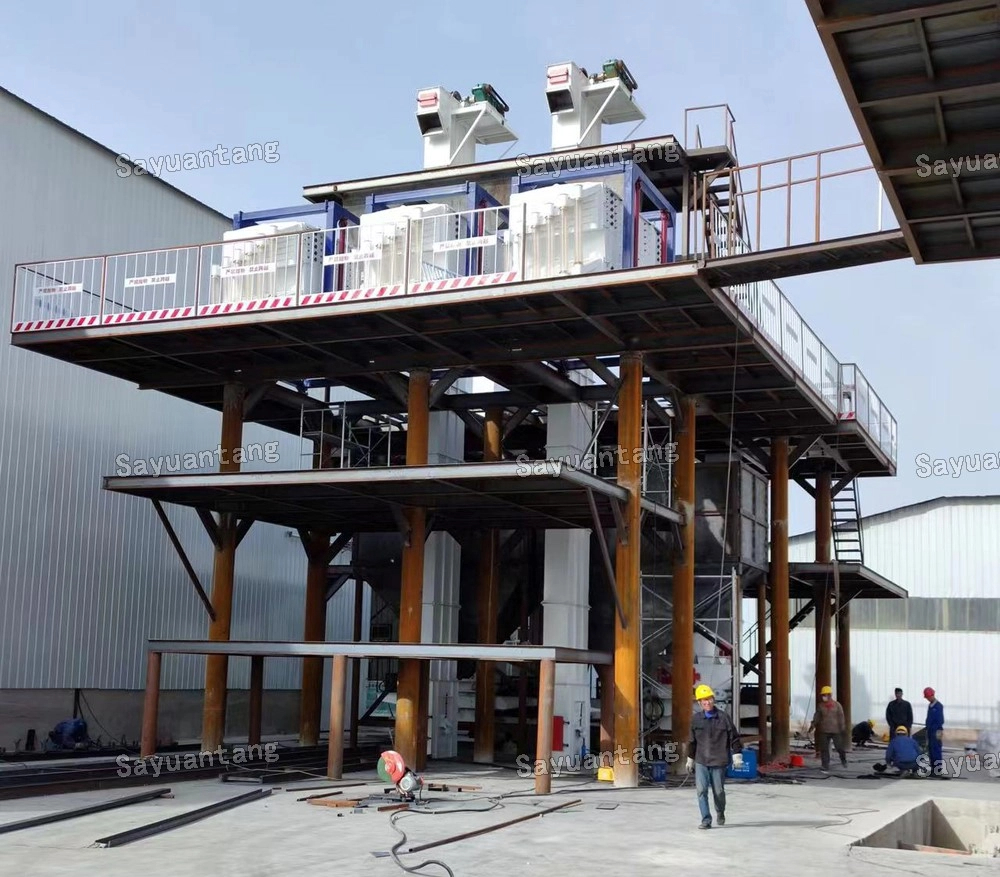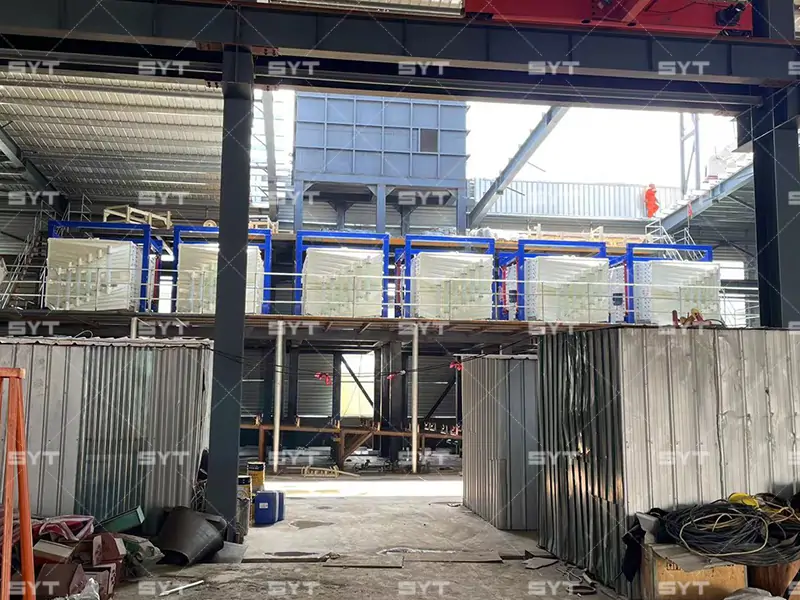When selecting a linear vibrating screen motor, you need to consider multiple aspects to ensure that the motor can meet the screening needs and operate stably. Here are some key selection factors:
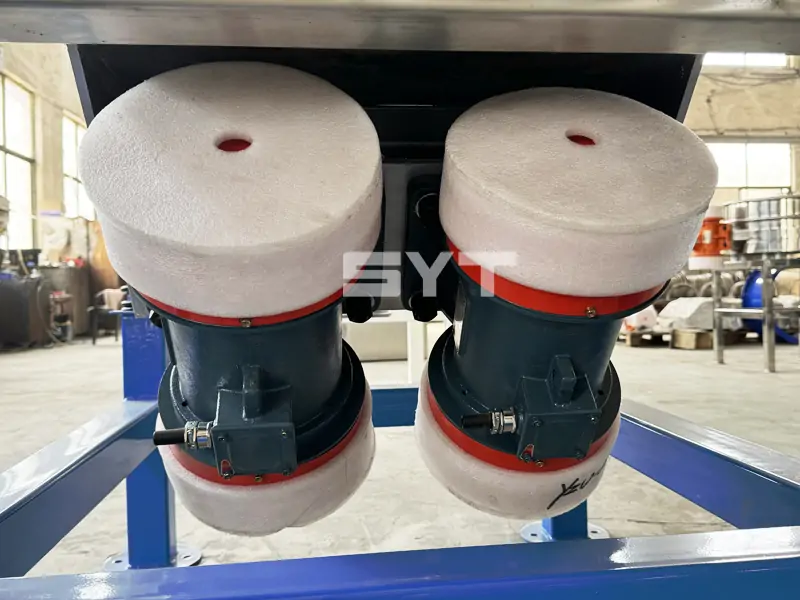
Screening material characteristics
- Particle size, density, humidity, viscosity: These characteristics will directly affect the screening effect and the load of the motor. For example, materials with large particle size and high density may require greater excitation force and power to ensure effective screening.
- Material type: Different types of materials have different degrees of wear on the screening equipment, which will also affect the selection and configuration of the motor.
Screening efficiency requirements
- Excitation force: The excitation force of the vibration motor should be sufficient to effectively screen the material on the screen surface, while ensuring the screening efficiency. According to the screening efficiency requirements, select the appropriate vibration motor model and power.
- Vibration frequency and amplitude: These parameters will also affect the screening efficiency. When selecting a motor, you need to ensure that the vibration frequency and amplitude can meet the screening requirements.
Working environment
- Temperature, humidity, corrosiveness: These factors in the working environment will affect the life and operating stability of the motor. Therefore, it is necessary to select a vibration motor that adapts to harsh environments, such as motors with anti-corrosion, high temperature resistance and other characteristics.
- Dust and water resistance level: According to the dust and moisture conditions in the working environment, select the appropriate dust and water resistance level to ensure the normal operation of the motor.
Motor performance parameters
- Power: According to the characteristics of the screening material and the screening efficiency requirements, select the appropriate motor power. For linear screens that work continuously for a long time, ensure that the rated power of the motor is slightly greater than the required power to avoid overload operation.
- Speed: The speed of the vibration motor is also an important factor in the selection. In general machinery, the commonly used synchronous speed is 1500r/min or 1000r/min. Select the appropriate speed according to the screening requirements and power source.
- Excitation force: As mentioned above, the excitation force is one of the key factors to ensure the screening effect. When selecting a motor, it is necessary to ensure that the excitation force can meet the screening requirements.
Other factors
- Motor type: Vibration motors can be divided into vertical vibration motors and horizontal vibration motors. Under normal circumstances, the linear vibrating screen is driven by a horizontal vibration motor.
- Brand and quality: Choosing a vibration motor from a well-known brand can ensure the quality and after-sales service of the motor. At the same time, you can also choose a suitable motor based on previous usage experience and user reviews.
- Economical: Consider the economical and cost-effectiveness of the motor while meeting the screening requirements. Choosing a motor with reasonable price and stable performance can reduce equipment costs and improve operating efficiency.
Conclusion
Multiple factors need to be considered when choosing a linear vibrating screen motor. In order to ensure the rationality and accuracy of the selection, it is recommended to consult and discuss with professional vibration motor manufacturers or relevant industry experts. At the same time, you can also refer to previous successful cases and usage experience to make a more wise choice.


